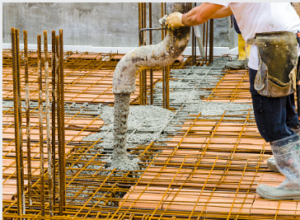Concrete is a versatile construction material used in buildings and dams of all shapes and sizes. Additionally, its strength makes it perfect for creating unique art features and finishes.
 Concreting requires multiple stages, including batching, placing and compaction. These steps must be carried out correctly for the best results. Thus, it is important to hire a concreting company Adelaide.
Concreting requires multiple stages, including batching, placing and compaction. These steps must be carried out correctly for the best results. Thus, it is important to hire a concreting company Adelaide.
Installation
Concrete is essential in many buildings and structures, making concreting services an integral component of this industry. Concreting contractors pour, place and shape concrete to form foundations, roads, suspended floors, columns and other structures. Recent trends in non-residential building construction, as well as infrastructure markets, have spurred its growth exponentially.
Starting a concreting business offers entrepreneurs the flexibility to set their own salary, schedule and client selection criteria. This level of freedom enables businesses to create the work/life balance that best suits them while rejecting projects that would be too costly or dangerous for their personnel. Most concreting firms require certain licenses, permits and insurance to protect both themselves and their customers against property damage or personal injuries when estimating startup expenses.
When hiring a concrete professional, be sure to obtain references and samples of their work. Inquire into estimated project costs, written guarantees addressing property damage liability concerns and requirements for cleanup after each job.
Repair
Concrete repair services typically involve filling cracks and replacing damaged sections of concrete with new ones while also adding existing reinforcement, known as rebar, to strengthen weak areas. Concrete repairs can be simplified if made using a bond coat – an equal mix of water and cement, which should be applied over the surface prior to placing new concrete – which has the consistency of whipped cream and should be applied before pouring concrete onto it.
Concrete is a durable building material used to construct pavements and roads as well as foundations of buildings or footings. Additionally, retaining walls are built from it to prevent soil erosion and stabilise the ground surface. If you need help, hire concreting company Adelaide immediately.
Maintaining the concrete surfaces and structures on your property can significantly increase its value, with repairs to cracks and maintenance guidelines helping extend their lifespan for years to come. To learn more about concrete services offered by Marstellar Oil and Concrete online. Our deliveries of ready-mix concrete for homeowners and contractors throughout Cumberland, Dauphin, Lancaster, and York counties in Pennsylvania.
Maintenance
Concrete is an essential part of construction projects. It offers durable foundations for buildings and other structures, protects from erosion and wear, provides level surfaces for other activities on-site, is cost-effective and eco-friendly – and should be maintained and repaired according to established maintenance techniques in order to guarantee long-lasting surfaces.
Concreting involves mixing cement, water, and aggregates (such as sand or gravel) to form concrete, an extremely strong and hard building material. Concrete is widely used across a range of applications – pavements and roads being two such uses that take advantage of its strong properties such as withstanding heavy traffic loads while weather conditions persist, foundations/footings/retaining walls/water tanks/tanks & even decorative purposes such as stamped or coloured concrete applications.
Design
Concrete is an indispensable material in many construction projects and is known for its durability and strength. It can withstand heavy loads as well as harsh weather conditions without cracking under pressure, thus making it the go-to material for pavements, roads, foundations, footings and water tanks – as well as decorative uses like stamped or coloured concrete applications.
Mass concreting involves pouring large volumes of concrete at once – often 100 cubic metres or more – as an alternative to more traditional forms of construction. While mass concreting may be cost-effective and efficient in certain circumstances, its drawbacks include needing specialist equipment and expertise as well as more complex quality control issues that need to be managed.
